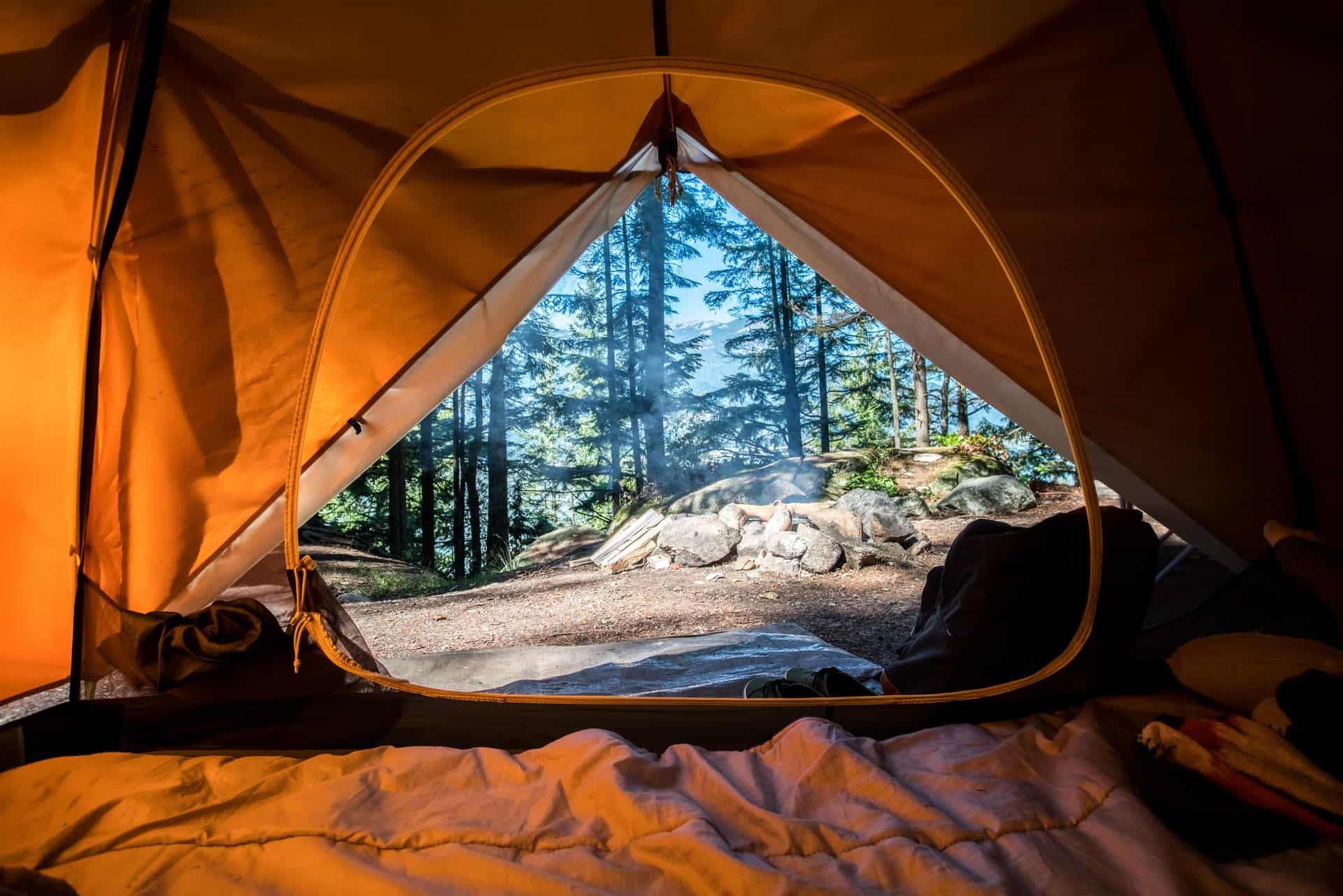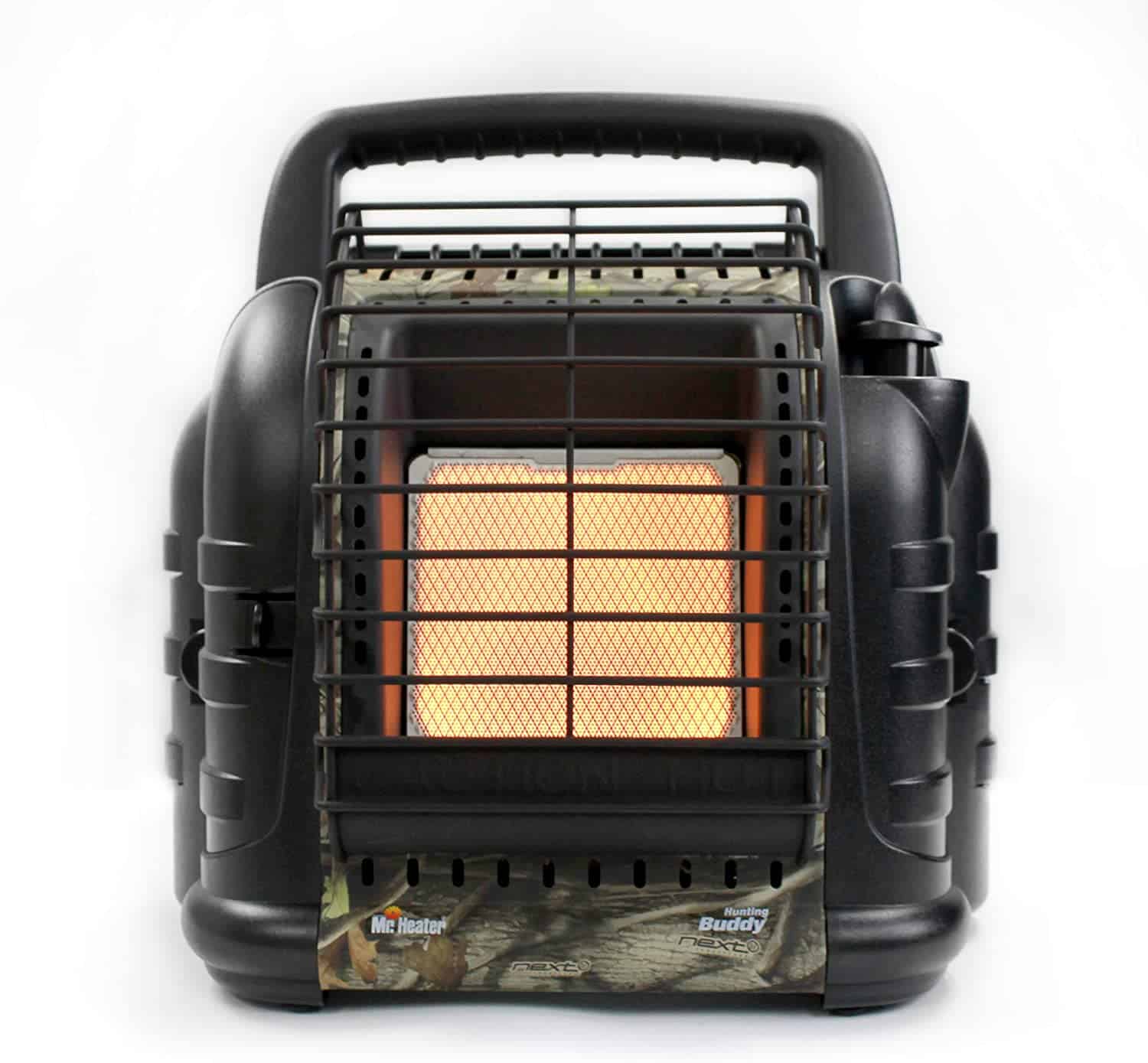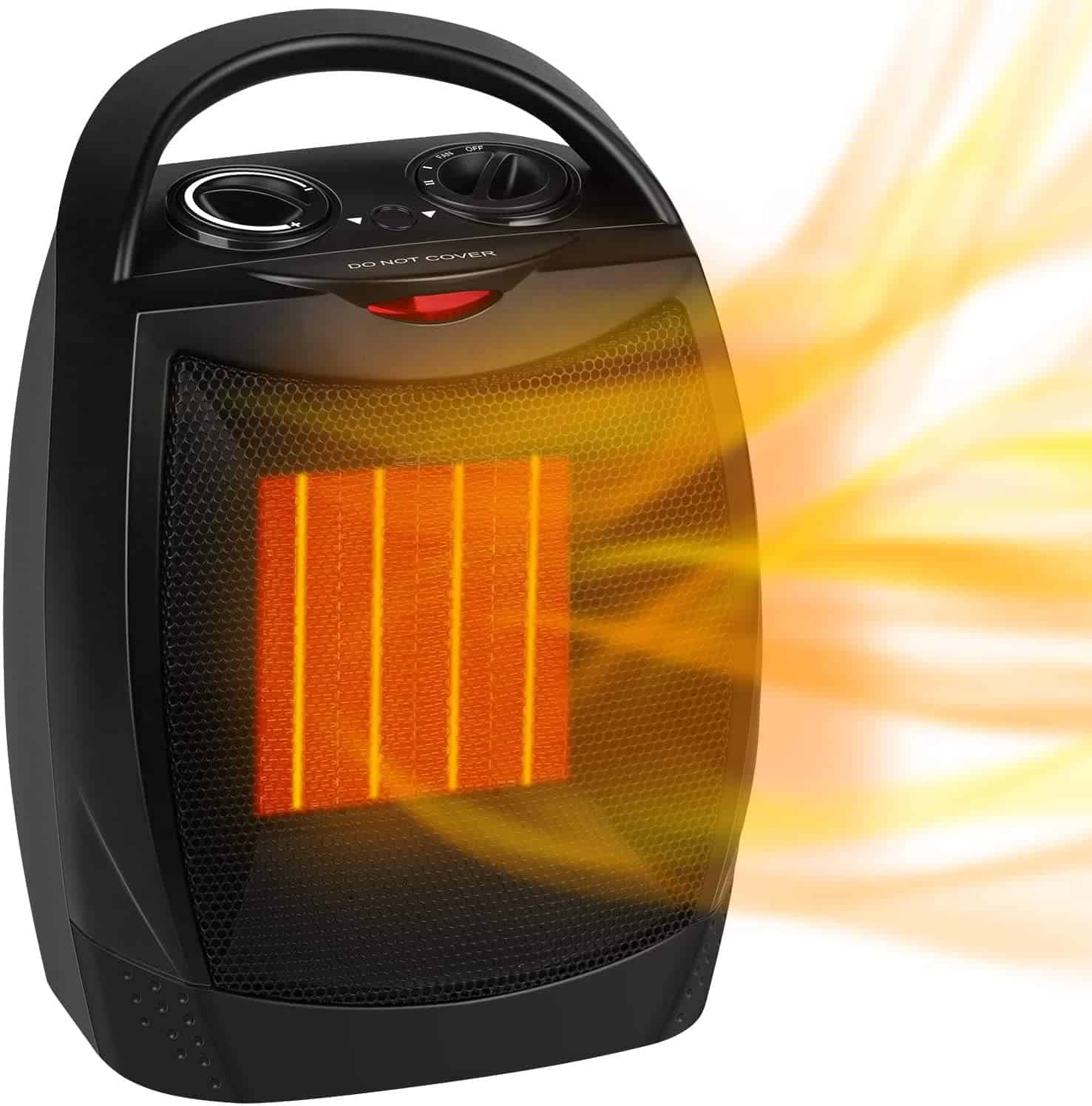It's that time of year again! Leaves are changing color, the air is getting chilly, and the camping trips are starting to rack up. But before you head out on your next outdoor adventure, you might be wondering: how to stay warm while camping in winters?
Tent heaters are a popular solution, but are they safe? To answer your question, tent heaters are safe to use inside a camp as long as you properly follow the recommended instructions and take precautions.
In this blog post, we’ll break down all the things you need to know about using a tent heater safely while camping - from the types of heaters available, what makes a tent heater safe, and how to use one properly.
Are you ready to stay cozy on your next camping trip?
Let's get started!
Why Would You Need A Tent Heater?
Apart from providing heat during the cold chilly nights, having a tent heater while camping out in the wilderness can come in handy in many circumstances:
1. Drying Your Camp After Rain
One of the most predictable things about nature is that it is highly unpredictable. Ironic, right? It can jump from the scorching sun to raining cats and dogs in the blink of an eye. So in such circumstances, a tent heater can help dry out your tent after a rainstorm if you set it up properly.
2. Keeping The Tent Toasty
While camping it often gets chilly at night, even in the summer! And if you’re like us, you don’t want to have to bundle up in all your winter gear just to try and stay cozy. In addition to keeping you warm and toasty, a heater helps create a comfortable atmosphere inside the tent, which is essential to ensuring a good night's sleep.
This allows your body to relax and recuperate from the previous day's excursions while also preparing it for the following day.
3. A Necessity While Traveling With Pets Or Kids
Lastly, if you are traveling with pets or children, tent heaters are essential to protect them from the brutal cold in the mountains. If not, they wouldn't be able to enjoy this trip, which means you wouldn't either. Just be sure to follow all the precautions!
Types Of Tent Heaters
There are four main types of tent heaters available on the market today: propane heaters, gas heaters, electric heaters, and wood-burning stoves.
Each has unique benefits and drawbacks, so let's have a look at all of them.
1. Propane Heaters
Although designed for outdoor spaces, some propane heaters have especially been designed for indoor use. They’re easy to set up and give off a lot of heat.
The main downside to using a propane heater is that they run a risk of emitting carbon dioxide if used faulty or without ventilation - make sure you read the instructions carefully before using one!
2. Electric Heaters
Electric heaters are a safer alternative to propane-powered tent heaters, as you don't have to worry about gas leakage or ventilation while using them. However, their biggest con is that they require a constant supply of electricity to function, which is quite rare in most caping sites.
Moreover, they can quickly turn into a safety hazard in case of rain or water leakage. They are only effective for smaller tents that can accommodate 1-2 persons.
3. Gas Heaters
Gas heaters on the other hand are portable, don't require any batteries or a source of electricity, and give off much more heat than an electric heater. But they are a fire hazard and run the risk of gas leakage.
These are best for use in the wilderness, as you will not have to worry about finding a power outlet or charging the batteries to keep them running. Just make sure to make an outlet for the air ventilation.
4. Wood Burning Stoves
Wood-burning stoves are a classic option and probably the safest way to heat your tent. They don't use any fuel, just a small fire, and can be used in any weather condition. However, they are not safe for use inside a closed tent as the fumes from wood can be harmful to the human body.
Verdict: Gas heaters are the best option of all as they are portable, more efficient, and some of them come with oxygen depletion sensors. These sensors can automatically turn the heater off if oxygen drops below a certain level.
Tent Heaters: What Makes Them Safe?
If you are worried about whether tent heaters are safe enough to warrant the comfort they provide, then here is the answer..... They are completely safe.
Technology has enabled engineers to design some safe and reliable heaters that can keep you warm inside your tent without any fear of carbon monoxide poisoning or any other accidents.
Be sure to look for a tent heater that has the following safety features to alleviate the risk of an accident:
2. Automatic Shut-Off
This feature ensures that the heater will turn off if it gets too hot or if there is a gas leak. Most heaters come with heat sensors that automatically switch them off if the temperature rises below a certain degree.
As a result, you will be out of harm’s way even if you doze off while the heater is plugged in. Although, we highly advise against it!
2. Oxygen Depletion Sensor
This sensor will automatically turn off the heater if the level of oxygen falls below a certain point. This feature is specifically necessary if you are buying a gas or propane heater as they regularly release small amounts of carbon monoxide.
The sensor triggers an alarm that warns you about the depleting level of oxygen inside a closed space. A life-saving feature that cannot be compromised at any cost.
3. Tip-Over Switch
A tent heater tipping over can potentially cause a fire due to contact with flammable objects such as clothing or sleeping bags. But a heater with this switch will immediately shut off if it tips over, thus reducing the danger of a fire.
Therefore, it is an essential safety feature if you want to avoid any hazards on your upcoming camping trip.
4. Flame Guard
A flame guard will help to keep any sparks or embers from escaping the heater and starting a fire. These are a grid of metal wires placed in front of the heating rods that will stop any sparks from exiting the heater.
5. Portability
While camping you will be carrying everything on your shoulders, from camp to sleeping bag, food supplies to a first-aid kit, and now the heater. So buying a lightweight and easy-to-carry heater will make your life so much easier.
You want to save your energy for mountaineering, not dragging along your luggage.

You can never be too careful when it comes to planning a safe camping trip. Buying a camping heater that ticks all the marks will make sure that your time outdoors is enjoyable and safe.
With a little preparation, you can be sure that everyone stays warm, comfortable, and most importantly — safe.
Safe Tent Heater: Recommendation
We did some digging and here are some tent heaters that we recommend:
This propane-powered heater comes with an oxygen depletion sensor, flame guard, and tip-over switch to keep you and your family safe while you're camping. In other words, it's equipped with all the safety features mentioned above.
Most importantly, this catalytic heater is compliant with ANSI Z21.103 certification, making it a very reliable option. It is specifically designed for enclosed spaces up to 300 sq. ft. However, the product cannot operate in altitudes higher than 7000 ft above sea level.\
Due to its rugged and compact design, it can survive the rash and unfavorable conditions of nature. With a weight of only 14 pounds, this heater makes a strong case for being a camping essential.
2. OPOLAR Ceramic Space Heater
Next on the recommenced tent heaters list is the OPOLAR Ceramic Space Heater. This small, but mighty heater is perfect for heating a small space like a tent or camper. It has an automatic overheat protection system to prevent any fires and comes with a 12-month warranty.
Pros:
Cons:
Not quite what you are looking for? Well, we have only mentioned two tent heaters - one electric and one gas. You can, however, choose from a variety of options on the market or an e-commerce platform.
Safety Tips For Using A Tent Heater
Here are some tips for safely using a tent heater:
- Make sure the heater is tent safe and rated for indoor use. This will ensure that it emits minimal levels of carbon monoxide.
- Always read and follow the manufacturer's instructions. This is critical! Heaters come with all sorts of safety features for a reason - make sure you know how to use them properly.
- Place the heater on a stable, level surface. This will help to ensure that it doesn't tip over.
- Keep the heater's surface uncovered at all times.
- Keep flammable objects away from the heater by at least 4 ft. This includes things like curtains, newspapers, and rugs.
- Never leave the heater unattended. If you need to step away briefly, make sure to unplug the heater first.
- Make sure the tent has proper ventilation. This is especially important if you're using a kerosene or propane heater. Without proper ventilation, carbon monoxide can build up and cause poisoning. Unzip the tent zipper by at least 6 inches to create an exhaust for the gas and allow the circulation of fresh air.
- Stitch in time saves nine! Get your heater checked before you hit the road for your next camping excursion.
- If you are using a portable gas heater, make sure it’s CSA 4.98 and/or ANSI Z21.103 certified.
While these safety precautions might seem like a lot of work, they are nothing compared to the risks associated with not using a tent heater at all.
Conclusion
To wrap it all up, tent heaters are safe to use inside camps as long as you take the proper precautions. Make sure to read the manufacturer’s instructions carefully and follow all safety guidelines.
With these tips in mind, you can stay warm and comfortable during your next camping trip – even when the temperatures drop low. We hope that this article has provided all the answers to your questions.
Thanks for reading and we hope you follow the guidelines we have outlined, before hopping on the road for your next trip. Stay warm on your next trip!
For more related guides read my other posts:
About the Author

Hussain is a passionate hiker and traveler that love the outdoor and enjoys what nature has to give, whenever he can he love to write and give tips & honest reviews to help others get out there and just seek more unforgettable experiences.


